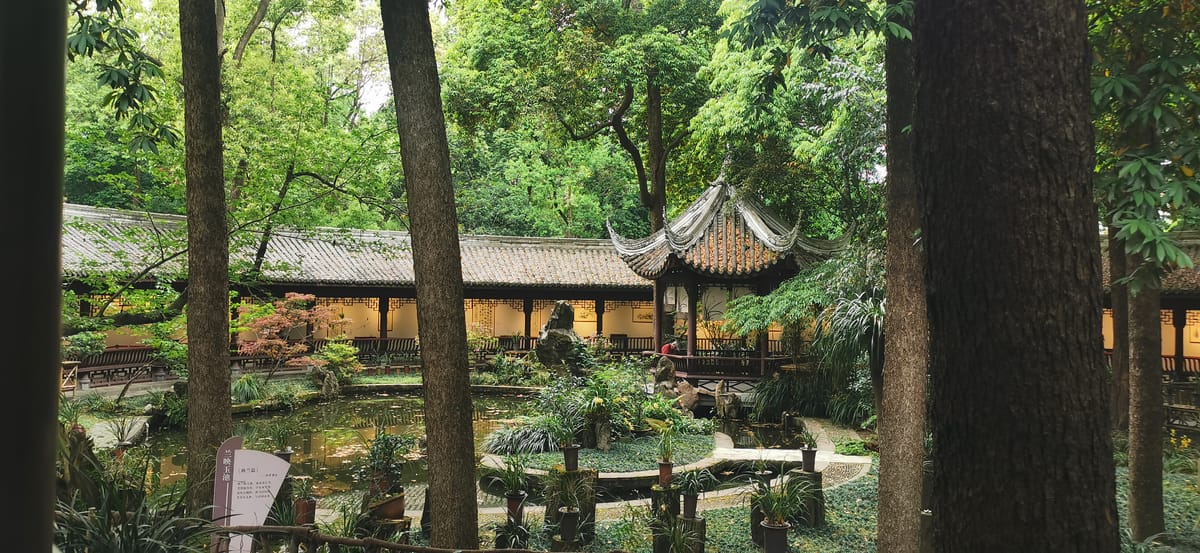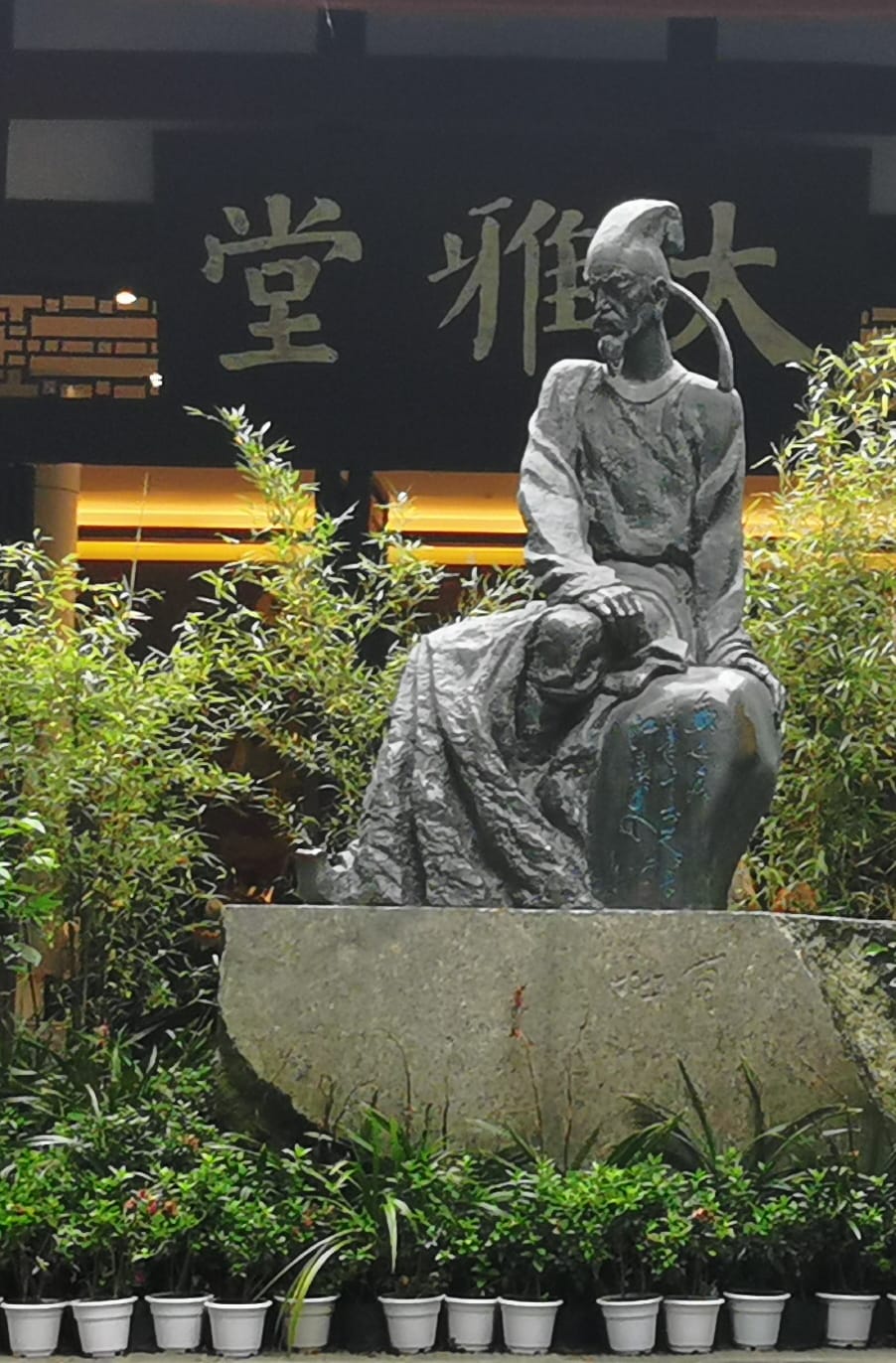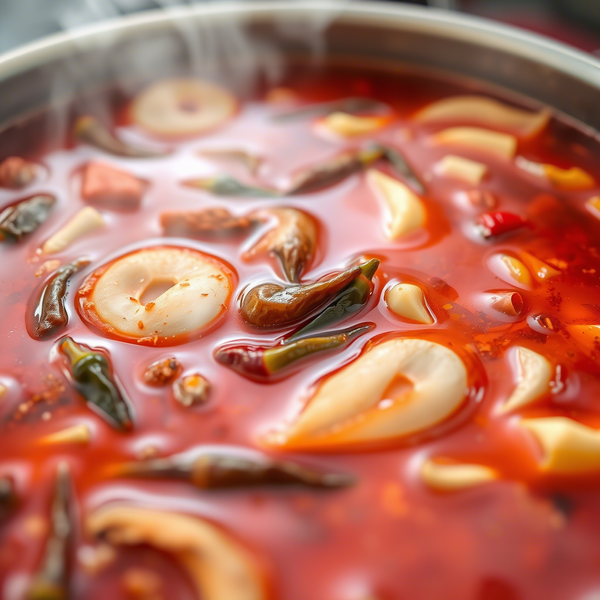Travelling to Chengdu

I have just recently returned from my trip to China. This time I travelled to Chengdu in Sichuan Province in southwestern China. Chengdu really is an interesting place with a rich history and delicious food. I learnt a lot about Chengdu while I was visiting and saw how modern and evolved things are in China with such a strong uptake in electrical vehicles and other technologies it truly seems like the future. I hope one day other countries can embrace the technology the way China has to move towards the future.
Chengdu is a city that sits on a plateau surrounded by mountains in Sichuan province. It has been around since the 4th Century BC founded by the Kingdom of Shu. Chengdu was the capital of Liu Bei's Shu Han Empire that some may be familiar with that have read about the Three Kingdoms or watched the movie Red Cliff - https://www.imdb.com/title/tt0425637/. In various parts of Chengdu or surrounding areas you can come across statues of people who made significant contributions during these early days of Chengdu such Zhuge Liang who was a strategist for Liu Bei in the time of the three kingdoms and Guan Yu who was a general serving under Liu Bei. In my trip we came across these significant statues at Dujiangyan(都江堰) & Mt. Qing Cheng(青城山). In another article I will go into more detail to discuss them as they are extremely interesting in their own right.
In addition to history from Liu Bei's Shu Han Empire there is also significant poets that have lived in Chengdu notably Du Fu from the Tang Dynasty - often considered one of the greatest Chinese Poets. While we were in Chengdu we visited the Du Fu Thatched Cottage which is a museum and beautiful set of gardens not far from the busy streets of Chengdu. I was naïve and thought arriving at 5pm we would have plenty of time to see the place but I was clearly mistaken - inside there were many different museums and gardens to see as well as poems to interpret where the local museum curators had provided an english translation as well which made my experience much more enjoyable. It was interesting to see the thatched cottage and use my imagination to try and imagine what life would be like as a poet in the Tang Dynasty. Du Fu only lived in the Thatched Cottage for 4 years but in those 4 years he wrote 240 poems. This time was considered the prime of his poetic career.

One of the famous poems he wrote was 春夜喜雨, in english this translates to Joyful Rain on a Spring Night. Du Fu wrote this during the year 761 in the Tang Dynasty, whilst living in Chengdu basing it on the characteristics of rain occurring on a spring night coming to nourish flowers and gardens. While he was living in Chengdu he farmed planting vegetables and flowers. After travelling there and seeing the gardens as they are maintained today, you can see how the reward of rain on a spring night would bring joy to an individual and inspire them to write. While, I was there - the gardens were vibrant and had many nice flowers to see.
Joyful Rain on a Spring Night Poem
好雨知时节,当春乃发生。
随风潜入夜,润物细无声。
野径云俱黑,江船火独明。
晓看红湿处,花重锦官城。
Good rain knows the season, it will happen in spring.
With wind the spring rain sneaks in night. Silently, it moistens everything.
The wild path and clouds are all black, while the river boats and fires are only bright.
When it is dawn, the damp soil will be covered with red petals, and there will be countless colorful flowers in the streets and alleys.
Translation courtesy of Baidu Translate



